Saint Seraphim of Sarov (Серафим Саровский) († 1833), was one of the most renowned Russian monks and mystics in the Orthodox Church. He is generally considered the greatest of the 19th century startsy (elders) and, arguably, the first. He is remembered for extending the monastic teachings of contemplation, theoria and self-denial to the layperson, and taught that the purpose of the Christian life was to acquire the Holy Spirit.
Seraphim was born in 1759 in the city of Kursk, Russia. He became a monk at the age of 27, and spent the rest of his life in the hermitage of Sarov, a remote monastery in the forests of central Russia. Seraphim was known for his asceticism and his devotion to prayer, and he became renowned throughout Russia for his spiritual wisdom and healing powers. Seraphim's canonization was a long and complex process that began shortly after his death in 1833. Over the years, the Church collected numerous accounts of his life and miracles, and his reputation as a holy man continued to grow.
In 1903, the Holy Synod of the Russian Orthodox Church officially recognized Seraphim as a saint at the ceremony attended by the Tsar and senior members of the Russian Imperial family, and his canonization was celebrated throughout Russia. Seraphim's canonization was an important event in the history of the Russian Orthodox Church. His teachings on prayer and asceticism continue to be an inspiration to many Orthodox Christians, and his monastery in Sarov remains an important center of pilgrimage and spiritual renewal. The canonization of Seraphim also helped to solidify the position of the Russian Orthodox Church as an important spiritual and cultural force in Russia, particularly during a time of political and social upheaval in the country.
Saint Seraphim is remembered in the Anglican Communion with a commemoration on 2 January. Pope John Paul II also referred to him as a saint.



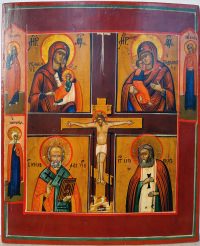
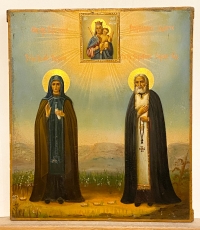

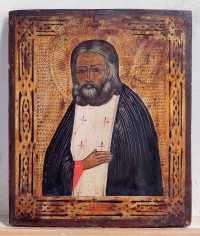
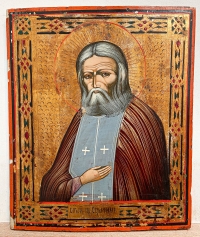
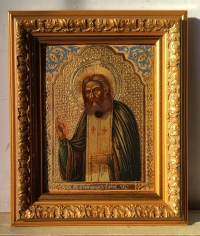
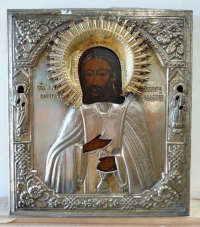
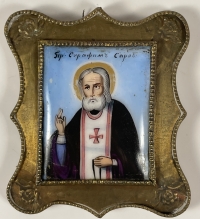


 Change language to English
Change language to English